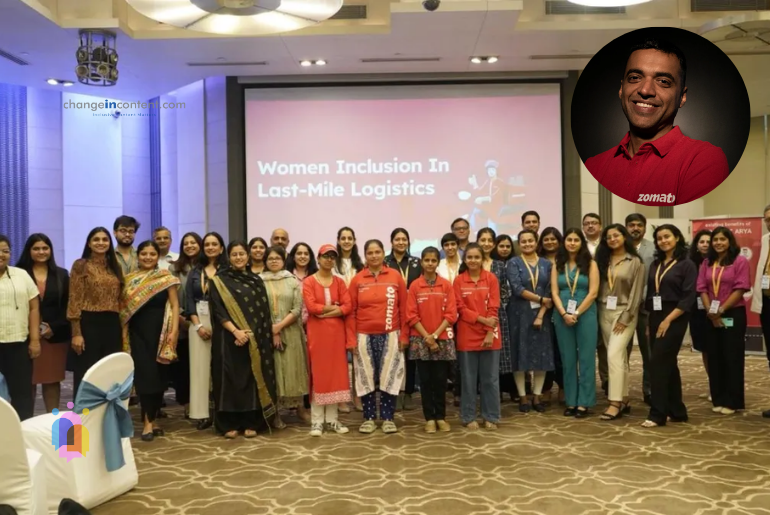The logistics industry has traditionally been male-dominated. The alarming fact is that women comprised only 8% of the global workforce in 2010. By 2018, this number had gone up to just 20%, while India saw only 15% of its logistics workforce comprised of women. Leadership roles in this sector also continue to be largely out of reach for women. Project Arya by Zomato is an initiative that aims to break the stereotype.
For women who have chosen careers in logistics, the lack of meaningful and equal opportunities is a serious issue. They also often face stereotypical assumptions about their abilities, particularly in promotions and decision-making roles. In an effort to break these gender barriers and provide women with the skills and opportunities necessary to succeed in logistics, Zomato launched its flagship initiative, Project Arya, in 2021.
Project Arya by Zomato: How it is making a difference
Launched in 2021, Project Arya reflects Zomato’s strong commitment to gender inclusion. Through this initiative, the company has successfully onboarded over 2,500 women into its delivery fleet. Interestingly, Zomato is doing more than just onboarding women into last-mile delivery. The company has begun onboarding women in its Hyperpure and Blinkit warehouses and dark stores. The company aims to achieve 20% female representation across daytime shifts in warehouses by the end of 2024.
Project Arya is not merely limited to increasing female representation in logistics. It is also about creating a supportive and inclusive workplace. Zomato understands the unique challenges women face in this field. Hence, they have taken steps to address the issues. The initiative offers benefits like shorter delivery distances, period rest leaves, and maternity support. By doing so, Zomato is ensuring that women feel supported and valued in their roles.
Zomato to support the training of 10,000 women in logistics
Zomato will support training 10,000 women for roles in logistics. The aim is to empower their participation within the supply chain and logistics workforce. This target was announced at the closed-door roundtable conference “Women in Logistics,” which is part of Zomato’s DEI initiative, Project Arya. In partnership with FSG’s GLOW (Growing Livelihood Opportunities for Women) program, Zomato also plans to address the glaring gender disparity in logistics roles, especially in warehousing.
Despite the flexibility and earning potential that delivery platforms offer, women currently make up less than 10% of the delivery workforce. Zomato aims to change this gender gap by partnering with both government and non-governmental organisations. Additionally, Zomato will address the unique challenges women face in gig work. Some of these challenges are safety concerns and limited access to training and infrastructure.
The final thoughts on Project Arya by Zomato
While there is a growing acknowledgement of women in logistics roles, there is still a lot of work to be done. Zomato’s initiative to train and equip women is a positive first step, but more companies need to recognise that the issue extends beyond just training. For instance, the availability of properly fitting equipment for women remains inconsistent. Many women in logistics have been forced to use equipment designed for men, which often leads to discomfort and inefficiency.
Next, address the gender pay gap. Women deserve equal pay for equal work, and this is a fundamental principle that every organisation should uphold. When two employees occupy similar job roles with comparable responsibilities and qualifications, they should receive similar salaries, no matter their gender.
It is also high time to achieve equal representation of women at all levels of logistics roles, particularly in leadership positions. While Zomato’s initiative is commendable, let’s see if it not only delivers results but also drives meaningful change in an industry that could use a fresh perspective.
Disclaimer: The views expressed in this article are based on the writer’s insights, supported by data and resources available both online and offline, as applicable. Changeincontent.com is committed to promoting inclusivity across all forms of content, which we broadly define as media, policies, law, and history—encompassing all elements that influence the lives of women and gender-queer individuals. Our goal is to promote understanding and advocate for comprehensive inclusivity.


